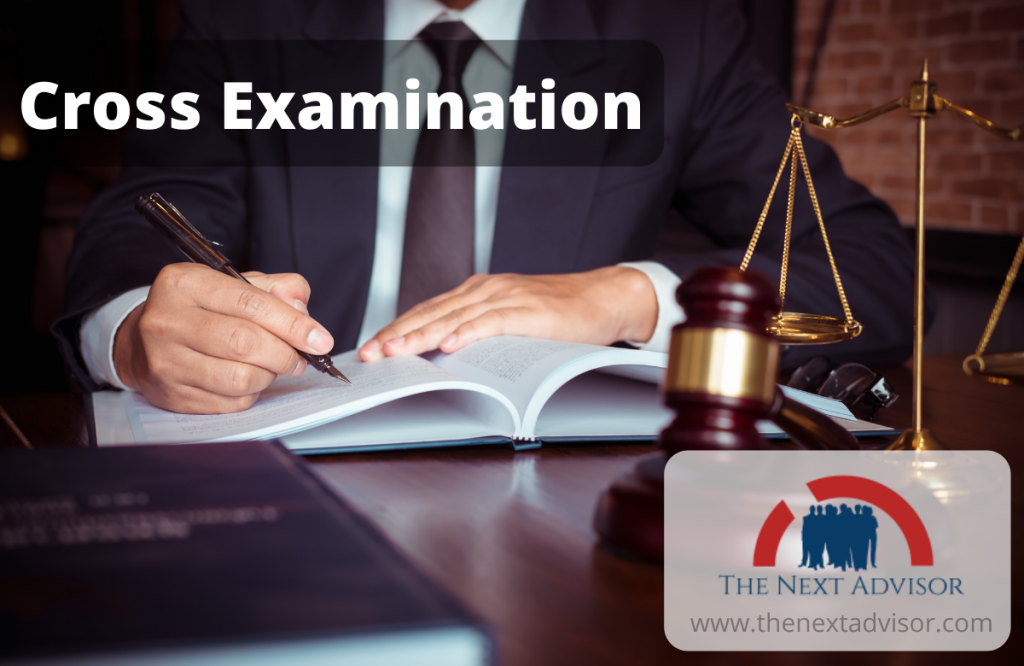What is the cross-examination?- The examination of a witness by the opposite side, generally after examination in chief, but sometimes without such examination; as in the case of an examination on the voir dire (speak the truth), which in the nature of cross-examination and also if one party calls a witness, and he is sworn the other party may cross-examine him, although the party who has called him put no question at all to him.
Sometimes questions in cross-examination are allowed by the judge after re-examination. And if a witness is called to prove some preliminary and collateral matter only as of the handwriting of a document tendered in evidence he is a witness in the cause and maybe cross-examined as to any of the issues in the cause.
As to the form of the cross-examination leading questions are allowed, which is not the case in examination in chief. The questions must be relevant to the issue, but great latitude is allowed as a question seemingly irrelevant often turns out otherwise.
It is provided by R.S.C., 1883, order XXXVI, Rule 38, that the Judge may disallow vacations and irrelevant questions and by Section 25 of the CLP Act, 1854, that if a witness denies a conviction for a felony, it may be proved.
The following are some of the chief heads of cross-examination:-
I. To cause their witness to alter or amend his evidence.
1. By showing
- he has spoken on a misconception of fact; or
b. Misunderstands the meaning of a word; or
- has given his idea of the effect of the transaction instead of the details.
2. By inquiring about the grounds of his belief.
3. By appealing to his consciousness of a weak memory
-To modify the evidence given in chief, by causing the witness to speak to supplementary facts to show
- the reason for what was done.
b. The circumstances surrounding it.
c. The manner in which it was treated at the time.
II. To discredit the evidence of the witness.
a. From reasons connected with himself
- That he is of bad character
- That he is not impartial as being.
- A friend of the other side
- A friend of his cause
- An enemy of the cross-examining party
- From reasons arising out of his evidence by causing him to give further evidence, inconsistent-
-With all reasons and probability.
-With evidence of witnesses of indisputable credit.
-With parts f the case not in dispute.
-With what he himself has previously said.
a) On a previous occasion.
b) In the examination in hand.- in chief and in the prior part of his cross-examination.
– With his own conduct in the transaction or the conduct of witness of undisputed credit.
– With his demeanor in court, as to irritate him.
III. To cause him to give evidence to be received as true.
– Confirming the evidence of the questioner’s witness.
– Contradicting that of the opponent’s witnesses.
– On a region of facts not previously entered upon.
- From the above list, I. is the most generally useful. II.,(A) may not be restored to without just grounds of suspicion. The effect of section three of the Criminal Procedure Act,1865, should be noted with respect to both civil and criminal matters. It has been well laid down that the cross-examination of each witness should be made subservient to the general conduct of the case.,
The right of cross-examination is indeed a valuable right and is a powerful weapon in the hands of the adversary. Normally, this should not be denied. However, the right should be exercised in a reasonable manner without causing undue procrastination.
